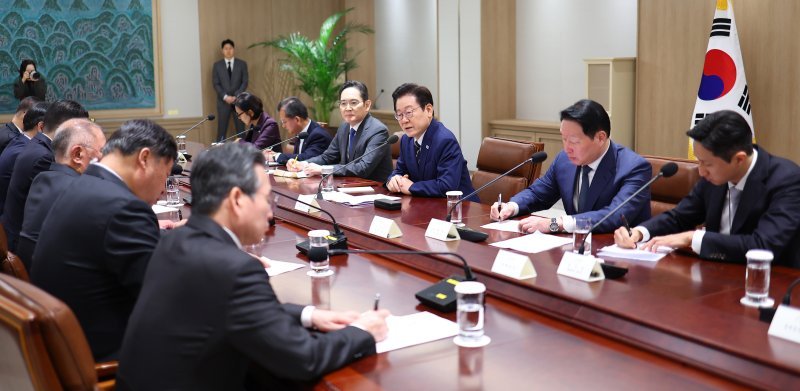[fn Editorial] The Outdated 40-Year-Old Same Person Designation System Should No Longer Be Neglected
- Input
- 2025-11-18 18:07:55
- Updated
- 2025-11-18 18:07:55

The Same Person Designation System for Business Groups, which the business community has identified as an urgent issue, is a representative regulation that runs counter to the times. This system classifies companies with assets exceeding 5 trillion won as large business groups and designates a specific individual as the 'same person,' subjecting them to multiple layers of oversight. Introduced in 1987 to mitigate economic concentration, it played a certain role during an era when family-centered management and sprawling business expansion were common. It helped curb the dominance of controlling families and prevented unfair internal transactions and collusion between business and government.
However, aside from the government, who still believes this system serves its purpose today? Forty years have passed since the development era of the 1980s. We now live in a global, high-tech, hyper-competitive age where national borders are increasingly irrelevant. It is not the size of a company but its technology and innovation that determine competitiveness. Companies are building factories overseas and relocating production bases at astronomical costs. Revenues generated abroad have reached levels unimaginable in the 1980s. The argument that the system for designating large business groups to prevent domestic monopolies and expansion has lost its effectiveness is entirely valid.
The constraints imposed by the same person designation are staggering. Once designated, the individual must report in detail the business status of relatives within the fourth degree of kinship and in-laws within the third degree, as well as all inter-affiliate transactions. Depending on the circumstances, even blood relatives within the sixth degree and in-laws within the fourth degree are included. If any information is unintentionally omitted, the individual faces criminal penalties. There are dozens of regulations, including restrictions on internal transactions and cross-shareholding. These are undeniably harsh rules. Today, family ties are not what they once were. How can it be reasonable to require someone to track the personal assets and investment details of distant relatives they may not even know, and face punishment for any mistakes?
The outdated Same Person Designation System for Business Groups is incompatible with the times and should be abolished. It is also important to remember that this system exists only in Korea, making it a 'Galapagos' regulation. Even Japan, which Korea once used as a model, abolished its version of the system more than 20 years ago. No other country has ever adopted such a system. If abolition will take time, at the very least, reforms should be expedited.
As the business community has demanded, it would be better to designate corporations, not individuals, as the same person, thereby reducing unnecessary obligations. Most large business groups have already transitioned to a holding company structure, and key management decisions are made by boards of directors. The scope of related parties should be limited to the spouse, direct descendants and ascendants, and cohabiting relatives of the same person who share economic interests.
Government regulations intensify in proportion to corporate growth. Instead of being rewarded for their efforts and dedication, entrepreneurs face even tighter restrictions as their companies expand. There is a vast difference in the number of regulations imposed on companies with assets over 5 trillion won versus those with over 10 trillion won. Notably, 78% of affiliates within large business groups are small and medium-sized enterprises (SMEs). These companies, which wield little influence, are subjected to regulations simply because they belong to a large business group. In this environment, innovation is a distant goal. A major overhaul of the Same Person Designation System for Business Groups is urgently needed.